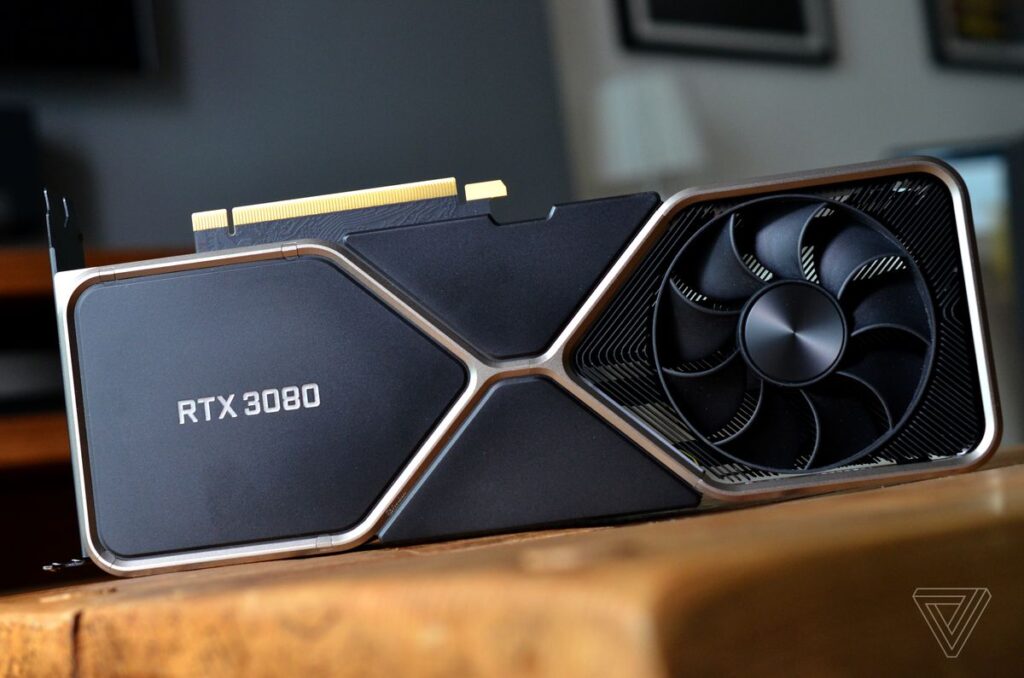Nvidia is getting ready to announce its next-gen GPU architecture, codenamed Lovelace. Ampere is the current GPU architecture that powers Nvidia’s RTX 30-series GPUs, after Turing debuted with the first RTX cards in 2018. Nvidia is now expected to detail its Lovelace GPU architecture at GTC 2022 in September, with CEO Jensen Huang hinting at an announce during the company’s recent earnings call.
“We’ll get through this over the next few months and go into next year with our new architecture,” said Huang, while discussing a slowdown in gaming GPU demand. “I look forward to telling you more about it at GTC next month.”
A new GPU architecture announce doesn’t mean we’ll see RTX 40-series GPUs immediately, though. Nvidia first unveiled its Ampere architecture for data centers, before launching its RTX 30-series cards for consumers months later. There’s always a slight delay between an architecture announce and consumer GPU launch. With the RTX 20-series that was just a week, so it doesn’t necessarily mean we’ll be waiting months.
Either way, rumors continue to suggest Nvidia is working on RTX 4080 and RTX 4090 GPUs. The monster RTX 4090 was originally rumored as a July release, and it could offer a big performance boost over existing RTX 3090 and even RTX 3090 Ti cards. Huang also hinted that current-gen RTX 30-series GPUs will live alongside next-gen ones.
The reason RTX 30-series and 40-series will likely co-exist is because Nvidia has built too many GPUs. It’s currently being forced to adjust retail pricing due to excess inventory, and we’ve seen RTX 30-series cards appearing at MSRP recently, following years of prices being hiked 2-3x by resellers. The crypto crash has affected GPU demand, and the excess inventory makes it more difficult to predict when Nvidia is likely to actually put its RTX 40-series cards on shelves.
Nvidia’s GTC 2022 conference will run September 19th to 22nd, with Jensen Huang’s keynote set for September 20th at 8AM PT / 11AM ET. “I look forward to next month’s GTC conference, where we will share new advances of RTX reinventing 3D graphics in gaming, AI’s continuing breakthroughs, and building the metaverse, the next evolution of the Internet,” says Huang.

